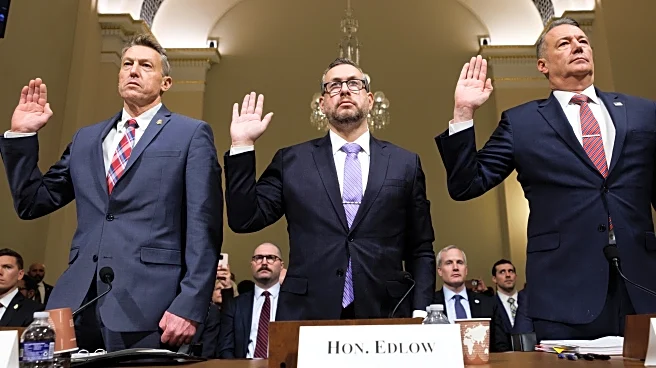Rapid Read • 8 min read
Recent data from the U.S. Bureau of Labor Statistics indicates a significant slowdown in job growth, with the economy adding an average of 35,000 jobs over the past three months, a sharp decline from the previous average of 128,000 jobs. This has raised concerns among analysts about a potential recession. President Trump has dismissed BLS Commissioner Erika McEntarfer, accusing her of manipulating data, a claim that lacks evidence. The firing has been criticized by former BLS Commissioner William Beach, who warns it undermines the Bureau's mission. Economists like Mark Zandi from Moody's Analytics highlight the risks of recession, partly attributing the economic slowdown to Trump's tariffs.
AD
The potential recession could have widespread implications for the U.S. economy, affecting industries, employment rates, and consumer spending. The slowdown in job growth and the firing of a key official may impact public confidence in economic data and policy decisions. Tariffs imposed by the Trump administration could further strain economic growth by increasing costs for importers and consumers. The situation poses challenges for policymakers and businesses as they navigate uncertain economic conditions.
The economy may need to slow further to be officially considered in recession, as defined by consecutive quarters of GDP decline. Analysts are divided on the likelihood of a recession, with some suggesting it could be a temporary adjustment. The Trump administration's economic policies, including tariffs, will continue to play a role in shaping the economic outlook. Stakeholders will closely monitor upcoming economic indicators and policy decisions to assess the trajectory of the U.S. economy.
The firing of Erika McEntarfer raises concerns about the politicization of economic data and its impact on public trust. The broader implications of tariffs and trade policies on global economic relations and domestic industries remain a critical area of analysis. The potential recession highlights the need for robust economic strategies to mitigate risks and support growth.
AD
More Stories You Might Enjoy












